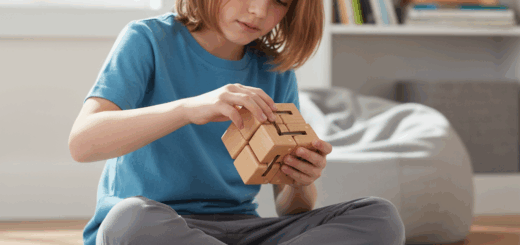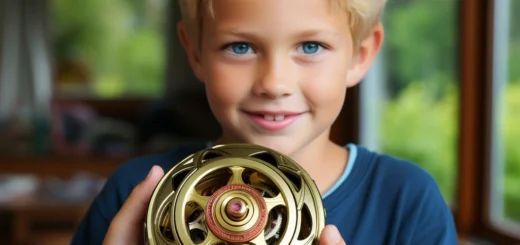7 Ways to Use Sensory Games to Help Autistic Toddlers

Sensory games are a great way to help autistic toddlers develop and learn. Sensory games can help improve fine motor skills, problem-solving, communication, and social skills. They can also provide a fun and engaging way for autistic toddlers to explore their senses and learn about the world around them.
Seven ways to use sensory games to help autistic toddlers
Here are seven ways to use sensory games to help autistic toddlers:
- Provide a variety of sensory experiences. Autistic toddlers may be drawn to specific sensory experiences, such as textures, sounds, or smells. It is essential to provide your child with various sensory experiences to help them explore their senses and learn about the world around them.
- Use sensory games in everyday activities. Sensory games can be incorporated into daily activities such as baths, meals, and playtime. For example, you can fill a water table with different textures and objects for your child to explore or give them other foods to taste and smell.
- Make sensory games fun and engaging. Sensory games should be fun and engaging for your child. Choose activities your child enjoys and appropriate for their developmental level.
- Follow your child’s lead. Let your child lead the way when playing sensory games. Observe their interests and preferences. If your child seems to enjoy a particular activity, continue doing it. If they seem bored or disinterested, move on to something else.
- Be patient and supportive. Your child may take some time to learn how to play sensory games. Be patient and supportive, and provide them with the help they need.
- Make sensory games a family activity. The whole family can enjoy sensory games. Get everyone involved in playing sensory games with your child.
- Talk to your child’s doctor or therapist. Talk to their doctor or therapist if you have any questions or concerns about using sensory games with your child. They can provide you with additional support and guidance.
Examples of sensory games for autistic toddlers
Here are some examples of sensory games for autistic toddlers:
- Water play: Water play is a great way to help autistic toddlers explore their senses. You can fill a water table with different textures and objects or let your child play in the bathtub.
- Sand play: Sand play is another great way to help autistic toddlers explore their senses. You can fill a sandbox with sand and different objects or let your child play in the sand at the beach.
- Playdough: Playdough is a fun and versatile sensory toy. Autistic toddlers can use playdough to create different shapes and objects or explore the texture and feel of the playdough.
- Sensory bins: Sensory bins are filled with different materials, such as rice, beans, pasta, or water beads. Autistic toddlers can use their hands to explore the different textures and materials in the sensory bin.
- Musical instruments: Musical instruments are a great way to help autistic toddlers explore sound. You can give your child a variety of musical instruments, such as drums, shakers, and bells, to play with.
- Pretend play: Pretend play is a great way to help autistic toddlers develop their communication and social skills. You can provide your child with props, such as dress-up clothes, dolls, and cars, to use in pretend play.
FAQ
Q: What are the benefits of sensory games for autistic toddlers?
A: Sensory games can help autistic toddlers develop their fine motor skills, problem-solving skills, communication skills, and social skills. They can also provide a fun and engaging way for autistic toddlers to explore their senses and learn about the world around them.
Q: What are some examples of sensory games for autistic toddlers?
A: Here are some examples of sensory games for autistic toddlers:
- Water play
- Sand play
- Playdough
- Sensory bins
- Musical instruments
- Pretend play
Q: How can I make sensory games fun and engaging for my autistic toddler?
A: Here are some tips for making sensory games fun and engaging for your autistic toddler:
- Choose activities your child enjoys and appropriate for their developmental level.
- Follow your child’s lead. Let them choose which activities they want to do and how they want to do them.
- Be patient and supportive. Your child may take some time to learn how to play sensory games.
- Make sensory games a family activity. Get everyone involved in playing sensory games with your child.
Q: What are some safety considerations when playing sensory games with my autistic toddler?
A: Here are some safety considerations when playing sensory games with your autistic toddler:
- Supervise your child closely at all times.
- Choose sensory materials that are safe for your child to play with. Avoid small objects that could be a choking hazard.
- Be aware of your child’s allergies and sensitivities. Avoid sensory materials that your child is allergic or sensitive to.
Q: Where can I find more information about sensory games for autistic toddlers?
Conclusion
Sensory games are a great way to help autistic toddlers develop and learn. Sensory games can help improve fine motor skills, problem-solving, communication, and social skills. They can also provide a fun and engaging way for autistic toddlers to explore their senses and learn about the world around them.
Discover more from Living with Autism
Subscribe to get the latest posts sent to your email.



1 Response
[…] social situations, explore our resources. We offer information on autism social skills. Learn about sensory considerations. Discover workplace […]